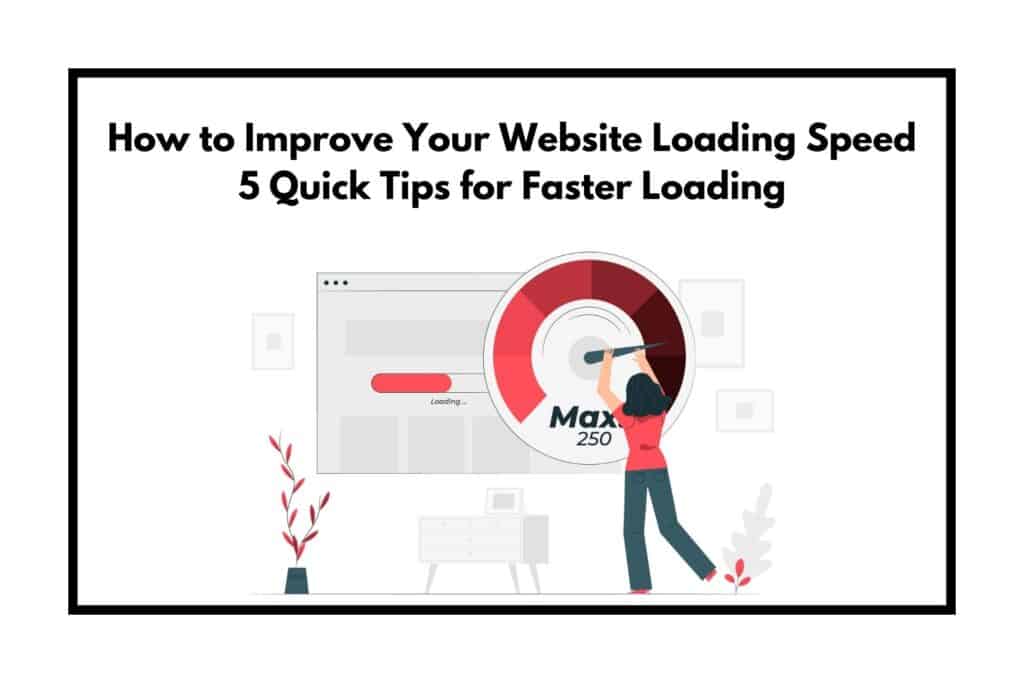WordPress speed optimization is a crucial factor for the success of any WordPress website. If your website is slow, it not only creates a poor user experience but can also lower your search engine rankings on Google. Fortunately, speeding up your WordPress site is entirely possible, and there are numerous tools and techniques available to help. In this article, we will explore the best WordPress speed optimization methods to make your website faster and more efficient.
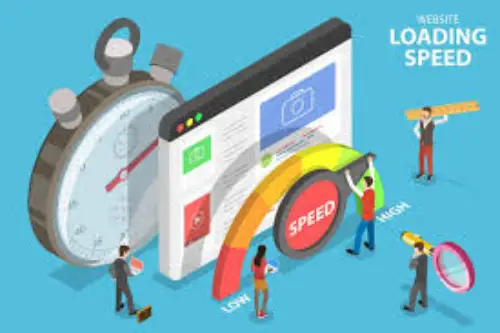
Why is Website Speed Important for WordPress?
1-Better User Experience: One of the main reasons to focus on optimizing your site speed is the impact it has on user experience. If your website takes too long to load, users will likely leave and visit competitor sites. According to statistics, just a one-second delay in loading time can reduce conversion rates by up to 7%. This means losing potential customers.
2- Impact on SEO (Search Engine Optimization): Google values fast-loading pages, using it as a ranking factor. If your site is slow, it could negatively affect your search rankings. Therefore, WordPress speed optimization plays a critical role in achieving better search engine results and driving more organic traffic to your site.
6 ways to optimize WordPress speed
1. Choose the Right Hosting Provider

Why Hosting Matters?The first and most important step in WordPress speed optimization is selecting a quality hosting provider. Low-quality hosting can lead to slow website performance. For WordPress websites, it is advisable to choose specialized WordPress hosting or high-performance hosting providers. These hosts typically offer features like caching and faster servers, which can dramatically increase your website’s loading speed.
Types of Hosting for WordPress:
- Shared Hosting: Suitable for small websites but may result in lower performance.
- Dedicated Hosting: Ideal for large, high-traffic websites requiring more resources.
- Managed WordPress Hosting: Hosting that is specifically optimized for WordPress, providing many features to improve site speed.
2. Use Caching
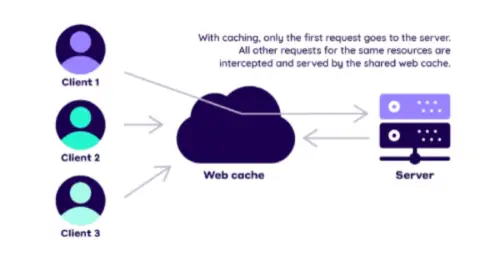
Why is Caching Important? Caching is an essential technique for speeding up your site. It stores copies of your website’s pages in the server’s memory so they can be served to users faster on subsequent visits. This reduces the load on the server and speeds up page load times.
WordPress Caching Plugins:
- WP Rocket: One of the best caching plugins for WordPress, WP Rocket automatically handles caching with minimal configuration.
- W3 Total Cache: A powerful plugin offering caching and performance optimization features.
- Autoptimize: A plugin useful for optimizing and compressing CSS, JS, and HTML files.
3. Image Optimization
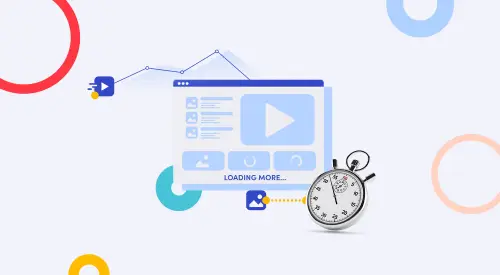
Why Optimize Images?
Images without optimization are one of the biggest culprits of slow-loading websites. High-resolution images can significantly increase the load time of your pages. Image optimization involves reducing the file size of your images without noticeably compromising quality.
WordPress Image Optimization Tools
- Smush Image Compression and Optimization: A plugin that automatically compresses images to reduce file size.
- ShortPixel Image Optimizer: A tool that can reduce image file sizes by up to 90%.
- Imagify: A plugin that helps optimize and reduce image sizes efficiently.
To optimize the speed and performance of WordPress websites, Autoptimize and Smush plugins are two popular tools that each have unique features that you can read about.
Why Database Optimization is Important?
4. Optimize Your WordPress Database
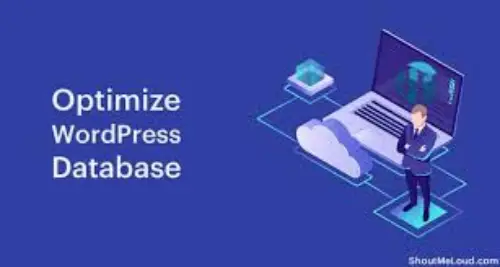
Over time, your WordPress database can accumulate unnecessary data, such as post revisions, spam comments, and unapproved comments. Cleaning and optimizing the database can improve your site’s speed.
WordPress Database Optimization Tools
- WP-Optimize: A plugin that helps clean and optimize your WordPress database.
- Advanced Database Cleaner: A tool for cleaning your database and removing unwanted data.
5. Use a Content Delivery Network (CDN)
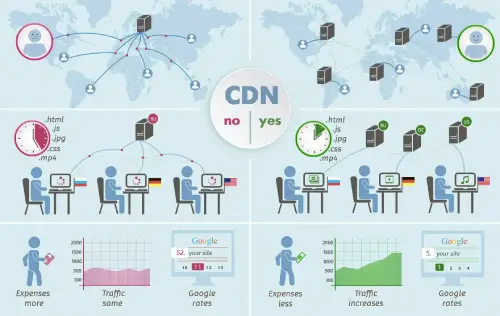
Why CDN is Useful?
A Content Delivery Network (CDN) is a network of servers that deliver your website’s content (images, CSS, JS files) from the closest server to the user. This drastically reduces load times because users get content from a nearby server instead of from a distant central server.
CDN Services for WordPress
- Cloudflare: One of the most popular CDN services that not only improves site speed but also enhances security.
- StackPath: A high-speed CDN that works well with WordPress.
- KeyCDN: An affordable CDN solution suitable for WordPress websites.
6. Optimize CSS, JavaScript, and HTML
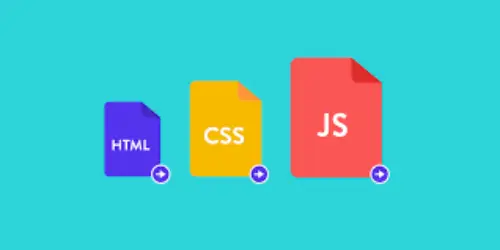
Why Minifying Code Matters?
Uncompressed CSS, JavaScript, and HTML files can take up a lot of space and slow down your website. Minifying and removing unnecessary code helps reduce the file sizes and, in turn, improves the loading time.
Code Optimization Tools
- Autoptimize: A plugin that minifies CSS, JS, and HTML files, improving website performance.
- Fast Velocity Minify: A plugin designed to minify HTML, CSS, and JavaScript files.
Conclusion
WordPress speed optimization is a critical aspect of website management that impacts not only user experience but also SEO and online business success. By implementing various techniques such as choosing the right hosting, using caching, optimizing images, cleaning your database, and utilizing a CDN, you can significantly improve your site’s performance and outperform competitors.
While optimizing your site’s speed is essential, don’t forget that building a successful WordPress site also requires expert help. If you’re considering hiring a professional, check out The Ultimate Guide to Hiring a WordPress Website Freelancer: Everything You Need to Know to find out how to choose the right freelancer to bring your website vision to life. Keep in mind that website speed optimization is an ongoing process, and it’s important to regularly monitor and improve your site’s speed.


